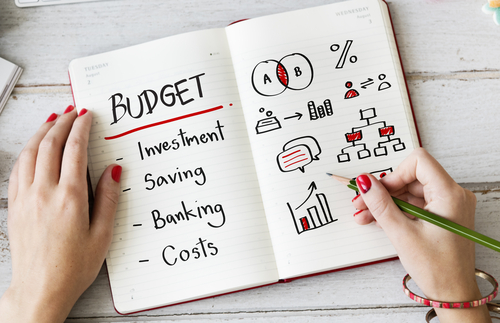An emergency fund is essentially the money that you’ve been setting aside to take care of unexpected expenses arising out of unforeseen events in life such as when a politician like Barney Frank passes laws that devastates your home’s value. When this happens, and it did too many people on a colossal scale in and around 2008, you want to have some money set aside.
You can call this a rainy day fund too!
An emergency fund allows you to survive at least for a few months just in case you suddenly receive the pink slip (job growth will soon be picking up with lower taxes and less regulations but sometimes companies still lay people off regardless) or get into an accident that prevents you from earning for a substantial period of time.
It could also be a leaking roof or a major car breakdown that needs immediate attention. In other words, it’s like an insurance policy, where instead of paying premiums to your insurer, you’re setting aside some money to be used later should any of the following circumstances suddenly arise:
- Emergency medical bills
- Mortgage payments
- Credit card bills
- Pending taxes
- Emergency home repairs (we have all seen Transformers 4; some robot called Lockdown may blow up your home!)
- Unexpected car damage and repairs
The whole objective is not to borrow for these expenses thereby increasing your debts.
Creating an Emergency Fund
The amount that should be kept as an emergency fund depends on your income and status; thus differing from person to person (you may not need as much money as Katy Perry who lives in her bubble land!). The thumb rule is to save about 3 to 6 months’ worth of funds that are required for all non-discretionary expenses. This fund will help you manage any financial crunch if you suddenly find yourself unemployed. With the aid of this fund, you should still be able to pay your household bills till you find employment again.
You may have to find a job though that is different than what you were doing before. You have to be able to pivot in life.
So how much money there should be in an emergency fund? It will vary. For instance, for a couple with kids, around six months of income is sufficient for an emergency fund. If you are single, have a mortgage, auto loan, and no school going children, you may only need three months since single people tend to be able to relocate easier and they do not have children to clothe and feed.
Automate the Process
One of the best methods for creating an emergency fund is a 401(k); buying a new Lexus is not part of this plan! Do not take financial advice from your neighbor unless they are credible! And if your neighbor is Charlie or Alan Harper, do not do what they say! If your employer offers you a 401(k) plan, sign up for it so that the money you earn is automatically funneled out of your paycheck into a separate account. These contributions are pre-tax and you will soon realize you do not have to sacrifice much to make this financial decision.
For instance, if your yearly earnings are $60,000, increasing your 401k contribution from 2% to 5% will reduce your weekly paycheck by $27. That is it! Also make sure to contribute enough to equal your employer’s “match,” because leaving “free money” on the table is unwise.
You can schedule when you want the money taken out of your pay check as well.
Also, a majority of 401(k) plans come with an auto-escalation feature. This enables you to automatically increase the savings rate by any amount of your choice, which is usually between 1 to 3% every year. For external accounts, create your personal semi-automatic-escalation system: keep a calendar alert that reminds you to spike up contributions by one percentage point or two on an annual basis, maybe every time you get a pay increase or on your birthday.
Pay yourself!
What to do After You Reach the Goal?
If you have accumulated the amount that is suitable for you, you can then pat yourself on the back. Now that you are in control of your finances, you can start investing. The point is, you need to keep on investing a part of your income and create another source of income from it. For instance, if you invest in stocks, every year you will earn some money in the form of dividends. But be careful, stock prices can go down.
You can read about the tech bubble during the turn of the century and know all about that!
In conclusion, having an emergency fund is having extra security. You might have life insurance coverage, health insurance, auto insurance, home insurance, dental insurance, and critical illness insurance to cover you in case you experience some sort of calamity. But none of these will help you if you lose your job. Well, just not as easily has having a 401(k) or a savings account with money saved away for a rainy day.
Life and critical illness insurance are for most people a waste of time and money but that is another topic!






